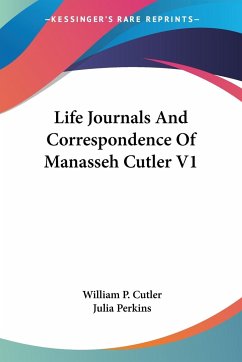Mr Jkai, born Mric Jkay (1825-1904), outside Hungary also known as Maurus Jkai, was a Hungarian dramatist and novelist. On the re-establishment of the Hungarian constitution by the Composition of 1867, he took an active part in politics. As a constant supporter of the Tisza administration, not only in parliament, where he sat continuously for more than twenty years, but also as the editor of the government organ, Hon, founded by him in 1863, he became a power in the state, and, though he never took office himself, frequently extricated the government from difficult places. He was an archromantic, with an almost Oriental imagination, and humour of the purest, rarest description. He continued to devote most of his time to literature, and his productiveness after 1870 was stupendous, amounting to some hundreds of volumes. Stranger still, none of this work is slipshod, and the best of it deserves to endure. His works include: Dr. Dumany's Wife (1891), The Nameless Castle (1896), The Poor Plutocrats (1899), Halil the Pedlar: A Tale of Old Stambul (1901) and Manasseh: A Romance of Transylvania (1901).
Manasseh: A Romance Of Transylvania is a novel written by Maurus Jokai and published in 1901. The story is set in the late 17th century in Transylvania, a region in modern-day Romania. It revolves around the character of Manasseh, a Jewish merchant who is forced to flee his home in Poland due to persecution. Manasseh arrives in Transylvania, where he falls in love with the beautiful and wealthy Esther, who is also Jewish. However, their love is complicated by the fact that Esther is already engaged to a wealthy nobleman, Count Michael. As Manasseh tries to win Esther's heart, he becomes embroiled in a political conspiracy involving the Turkish Empire and the Habsburg Empire. He is also forced to confront his own beliefs and values as he navigates the complex social and religious dynamics of Transylvania. The novel is a tale of love, adventure, and political intrigue set against the backdrop of a tumultuous period in Transylvania's history. It explores themes of identity, belonging, and the struggle for freedom and justice.This scarce antiquarian book is a facsimile reprint of the old original and may contain some imperfections such as library marks and notations. Because we believe this work is culturally important, we have made it available as part of our commitment for protecting, preserving, and promoting the world's literature in affordable, high quality, modern editions, that are true to their original work.
Hinweis: Dieser Artikel kann nur an eine deutsche Lieferadresse ausgeliefert werden.
Manasseh: A Romance Of Transylvania is a novel written by Maurus Jokai and published in 1901. The story is set in the late 17th century in Transylvania, a region in modern-day Romania. It revolves around the character of Manasseh, a Jewish merchant who is forced to flee his home in Poland due to persecution. Manasseh arrives in Transylvania, where he falls in love with the beautiful and wealthy Esther, who is also Jewish. However, their love is complicated by the fact that Esther is already engaged to a wealthy nobleman, Count Michael. As Manasseh tries to win Esther's heart, he becomes embroiled in a political conspiracy involving the Turkish Empire and the Habsburg Empire. He is also forced to confront his own beliefs and values as he navigates the complex social and religious dynamics of Transylvania. The novel is a tale of love, adventure, and political intrigue set against the backdrop of a tumultuous period in Transylvania's history. It explores themes of identity, belonging, and the struggle for freedom and justice.This scarce antiquarian book is a facsimile reprint of the old original and may contain some imperfections such as library marks and notations. Because we believe this work is culturally important, we have made it available as part of our commitment for protecting, preserving, and promoting the world's literature in affordable, high quality, modern editions, that are true to their original work.
Hinweis: Dieser Artikel kann nur an eine deutsche Lieferadresse ausgeliefert werden.








